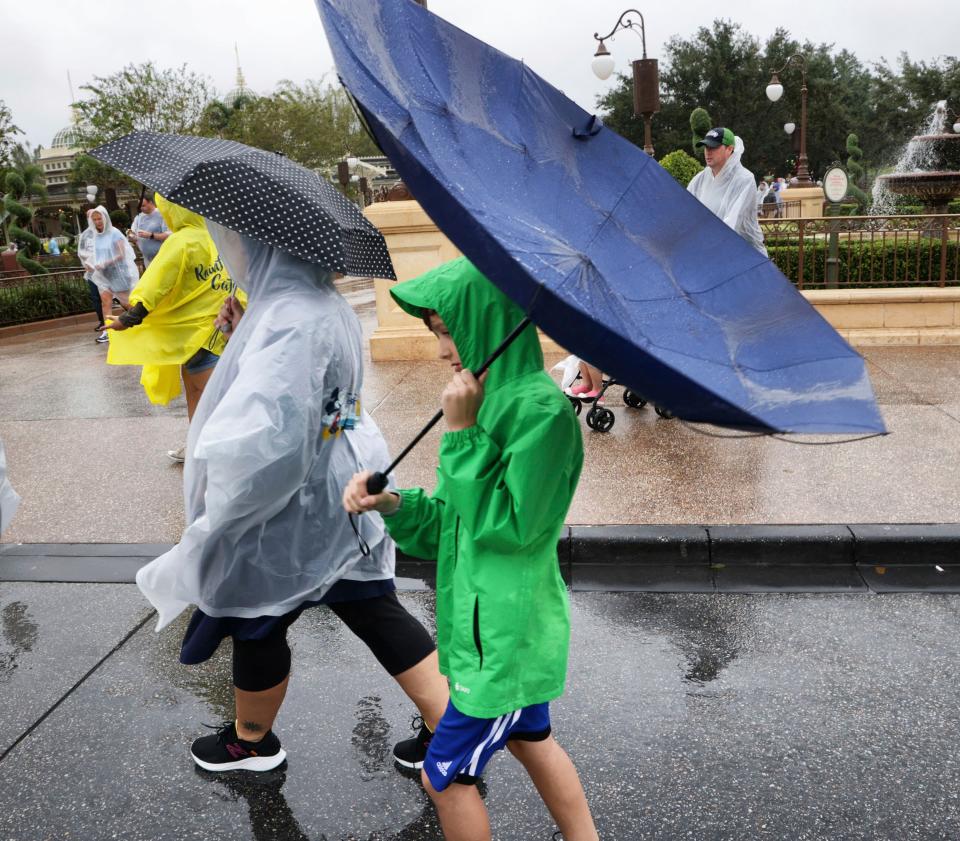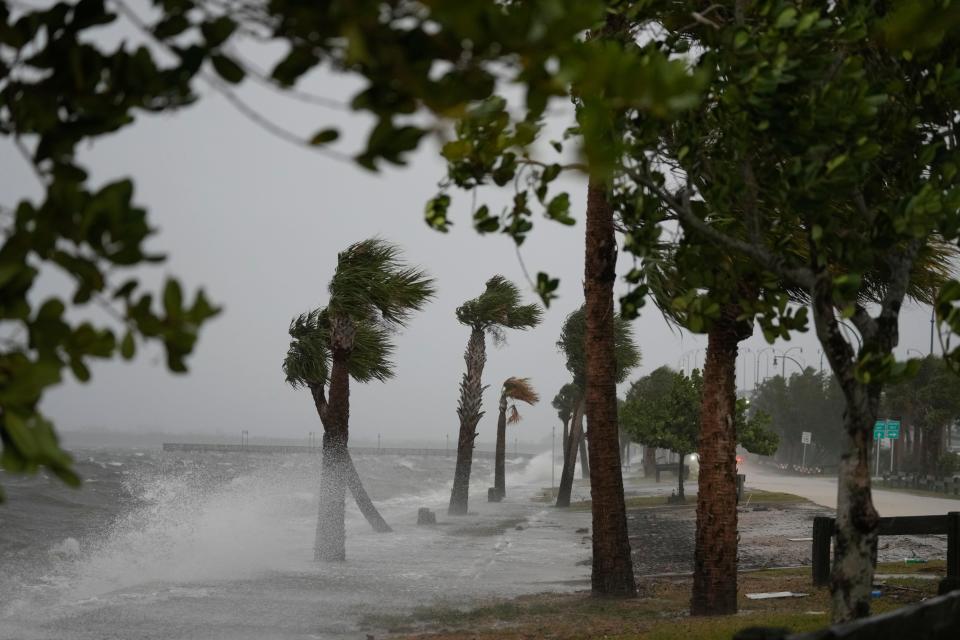Hurricane season is about to start: Tech can help you prepare for natural disasters
Ahead of the Atlantic hurricane season, which officially starts June 1, the National Oceanic and Atmospheric Administration (NOAA) says its long-range forecasts will now be issued a full week out, as opposed to just five days, to help residents better prepare for major storms.
The government agency also announced upgrades to its primary model for predicting storm surges – an abnormal rising of the sea caused by atmospheric pressure changes and wind associated with a storm – to more accurately analyze the extent of potential damage.
On a related note, NOAA boosted the odds that an El Niño event will form in the tropical Pacific Ocean during the May-July season, with a more than 90% chance of persisting into the winter for the Northern Hemisphere.
Whether or not we see disastrous storms this summer, it's best to prepare, get the supplies you need, and ensure your family knows what to do in case of such emergencies.
On the tech front, your survival plan should include your smartphone, because it could be a lifeline during an emergency, along with some handy apps, and a few other considerations.

Hurricane tracker: Updates on the path of every storm
Hurricanes and climate change: The West Coast has a powerful protection from hurricanes. Could climate change weaken it?
What are the best apps to prepare for a hurricane?
A handful of free disaster preparedness apps can help you in a weather emergency − but be sure to download them now as opposed to when you need them, because you may not have service.
Red Cross offers numerous apps, including a Shelter Finder app, First Aid, Hurricane app, Earthquake, Wildfire and others. Each one includes checklists, advice during emergencies (performing first aid and CPR, handling food and water during power outages), quizzes, sign-ups for emergency notifications, and more.
If you own a smart speaker, you can also enable Red Cross severe weather warnings by saying "Alexa, enable Hurricane Alerts by the American Red Cross" (on an Amazon Echo device) or, to find nearby blood drives, say "Hey Google, talk to Red Cross Blood Donation" (on a Google Nest speaker or display).
Similarly, the official FEMA App includes information for all kinds of disasters, including tips for creating an emergency kit and emergency meeting locations, maps of important locations, and other preparations.
Another good one: the aptly named Disaster Alert app and website offer a real-time map that shows activate (or impending) incidents, those considered "potentially hazardous to people, property, or assets," according to the PDC DisasterAWARE platform. That includes hurricanes, floods, earthquakes, tsunamis, volcanos and more.
Speaking of apps, it's a good idea to take advantage of Google Maps' offline feature, which lets you select an area (even an entire city) to download and view on your smartphone in case there's no cell service or Wi-Fi.
It's almost hurricane season: Here's the list of names for the 2023 Atlantic hurricane season
Weather update: Texas tornado cleanup, Pacific Northwest could see record heat
Whom do I call during a hurricane?
Did you know you can still call 911 from your mobile phone, even if you don't have an active plan?
Because you don't need to pay for cell service to call 911, it's not a bad idea to keep an old and deactivated phone in your emergency kit or vehicle's glove compartment. Make sure it's charged up, and if it's not a waterproof phone, keep it in a Ziploc bag.
You can also text 911, perhaps if you're unable to talk or need to be silent, but you must first be registered for the 911 service with your wireless service provider.
Presuming there is cellular or Wi-Fi service, people are also encouraged to send text messages and emails, respectively, and post notifications to social media about their whereabouts and immediate needs, as well as to look up local shelters and check in on relatives and friends.
Hurricane insurance: What is it and how much does it cost?
Citizens Insurance: What you need to know about its flood coverage mandates

What power generator should I buy?
A backup power solution is essential in a weather-related emergency.
After all, even if you have cellular service in your area, you may not have power or be able to access a working power outlet.
Anker’s battery-powered PowerHouse family, for example, are portable power generators to charge up or run virtually any device during an emergency (or when off the grid, such as when camping or RVing).
They're also ideal for those who live in an apartment or condo unit when a gas generator is not an option. They could power lights, laptops, CPAP machines, small appliances and medical equipment.
PowerHouse prices start at $219; Anker's new and top-of-the-line model is the 2400-watt PowerHouse 767 ($1,999), which includes an RV port, four AC ports, three USB-C ports, two USB-A ports and two standard car outlets.
The 767 can even be used to power a full-sized fridge to avoid losing perishable items during a power outage (especially given how much groceries cost these days!).
It's on wheels and has a handle to pull it, so you can bring it outside to power electric tools, like saws, to help cut down branches.
The PowerHouse can be charged from 0% to 80% in just one hour. You also can double the power storage with an optional expansion battery or pick up solar panels (both sold separately).
Other recommended gear during a severe weather event include hand-crank or solar radio, and a waterproof flashlight.
Follow Marc on Twitter for his “Tech Tip of the Day” posts: @marc_saltzman. Email him or subscribe to his Tech It Out podcast. The views and opinions expressed in this column are the author's and do not necessarily reflect those of USA TODAY.
This article originally appeared on USA TODAY: Tech that can help prepare you for hurricane season
